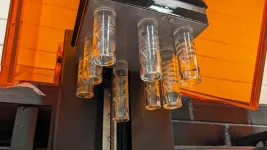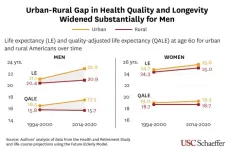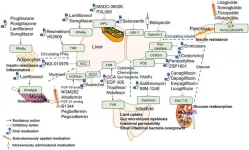Manganese cathodes could boost lithium-ion batteries
Manganese is earth-abundant and cheap. A new process could help make it a contender to replace nickel and cobalt in batteries.
2024-09-25
(Press-News.org) Rechargeable lithium-ion batteries are growing in adoption, used in devices like smartphones and laptops, electric vehicles, and energy storage systems. But supplies of nickel and cobalt commonly used in the cathodes of these batteries are limited. New research led by the Department of Energy’s Lawrence Berkeley National Laboratory (Berkeley Lab) opens up a potential low-cost, safe alternative in manganese, the fifth most abundant metal in the Earth’s crust.
Researchers showed that manganese can be effectively used in emerging cathode materials called disordered rock salts, or DRX. Previous research suggested that to perform well, DRX materials had to be ground down to nanosized particles in an energy-intensive process. But the new study found that manganese-based cathodes can actually excel with particles that are about 1000 times larger than expected. The work was published Sept. 19 in the journal Nature Nanotechnology.
“There are many ways to generate power with renewable energy, but the importance lies in how you store it,” said Han-Ming Hau, who researches battery technology as part of Berkeley Lab’s Ceder Group and is a PhD student at UC Berkeley. “By applying our new approach, we can use a material that is both earth-abundant and low-cost, and that takes less energy and time to produce than some commercialized Li-ion battery cathode materials. And it can store as much energy and work just as well.”
The researchers used a novel two-day process that first removes lithium ions from the cathode material and then heats it at low temperatures (about 200 degrees Celsius). This contrasts with the existing process for manganese-based DRX materials, which takes more than three weeks of treatment.
Researchers used state-of-the-art electron microscopes to capture atomic-scale pictures of the manganese-based material in action. They found that after applying their process, the material formed a nanoscale semi-ordered structure that actually enhanced the battery performance, allowing it to densely store and deliver energy.
The team also used different techniques with X-rays to study how battery cycling causes chemical changes to manganese and oxygen at the macroscopic level. By studying how the manganese material behaves at different scales, the team opens up different methods for making manganese-based cathodes and insights into nano-engineering future battery materials.
“We now have a better understanding of the unique nanostructure of the material,” Hau said, “and a synthesis process to cause this ‘phase change’ in the material that improves its electrochemical performance. It’s an important step that pushes this material closer to battery applications in the real world.”
This research used resources at three DOE Office of Science user facilities: the Advanced Light Source and Molecular Foundry (National Center for Electron Microscopy) at Berkeley Lab, and the National Synchrotron Light Source II at Brookhaven National Laboratory. The work was supported by DOE’s Office of Energy Efficiency and Renewable Energy and Office of Science.
###
Lawrence Berkeley National Laboratory (Berkeley Lab) is committed to delivering solutions for humankind through research in clean energy, a healthy planet, and discovery science. Founded in 1931 on the belief that the biggest problems are best addressed by teams, Berkeley Lab and its scientists have been recognized with 16 Nobel Prizes. Researchers from around the world rely on the lab’s world-class scientific facilities for their own pioneering research. Berkeley Lab is a multiprogram national laboratory managed by the University of California for the U.S. Department of Energy’s Office of Science.
DOE’s Office of Science is the single largest supporter of basic research in the physical sciences in the United States, and is working to address some of the most pressing challenges of our time. For more information, please visit energy.gov/science.
END
[Attachments] See images for this press release:
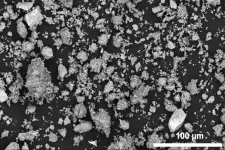
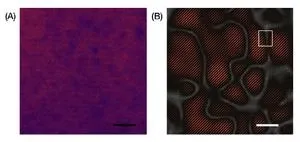
ELSE PRESS RELEASES FROM THIS DATE:
2024-09-25
Link to Google Drive folder containing images:
https://drive.google.com/drive/folders/1ZTBXkIFqwl_OyIMrUA1se_iv7hqEm_52?usp=sharing
Link to release:
https://www.washington.edu/news/2024/09/25/tesla-coil-shark-intestines/
FROM: James Urton
University of Washington
206-543-2580
jurton@uw.edu
(Note: researcher contact information at the end)
For immediate release
Sept. 25, 2024
To make fluid flow in one direction down a pipe, it helps to be a shark
Flaps perform essential jobs. From pumping hearts to revving engines, flaps help fluid flow in one direction. ...
2024-09-25
Rural men are dying earlier than their urban counterparts, and they’re spending fewer of their later years in good health, according to new research from the USC Schaeffer Center for Health Policy & Economics.
Higher rates of smoking, obesity and cardiovascular conditions among rural men are helping fuel a rural-urban divide in illness, and this gap has grown over time, according to the study published this week in the Journal of Rural Health. The findings suggest that by the time rural men reach age 60, there are limited opportunities to fully address this disparity, and earlier interventions may be needed to prevent it from widening ...
2024-09-25
Held annually, NY Climate Week is a pivotal event in the global climate change calendar. Bringing together notable leaders, celebrities, climate professionals, and innovators from around the world, the event serves as a critical platform for discussing and advancing climate action. This year’s theme, "It’s Time," underscores the urgency for immediate and ambitious efforts to tackle climate change, and the process could be accelerated with Generative AI and other cutting-edge technologies.
Insilico Medicine ...
2024-09-25
Young adults who vape show chemical changes in their DNA similar to those found in young adults who smoke — changes known to be linked to the development of cancer — according to a new study just published in the American Journal of Respiratory Cell and Molecular Biology.
A team of researchers from the Keck School of Medicine of USC measured DNA methylation, a chemical modification of DNA that can effectively turn genes “on” or “off, in the oral cells of young adult vapers, smokers and non-users. DNA methylation is vital to normal cellular ...
2024-09-25
DALLAS, Sept. 25, 2024 — The American Heart Association, celebrating 100 years of lifesaving service as the world’s leading nonprofit organization focused on heart and brain health for all, is joining with other top cardiovascular research funders around the world to support an international scientific research grant focused on women’s cardiovascular health. Scientific researchers around the world are invited to apply for the award to foster global advancements in understanding and improving the diagnosis, treatment and prevention of cardiovascular disease (CVD) among women.
A 2022 presidential advisory ...
2024-09-25
Non-alcoholic fatty liver disease (NAFLD), recently reclassified as metabolic dysfunction-associated steatotic liver disease (MASLD), has become the most prevalent chronic liver disease globally. This reclassification underscores the metabolic dysfunction central to the disease, which spans a spectrum from simple steatosis to more severe forms like steatohepatitis, fibrosis, and cirrhosis. Given the significant overlap between MASLD and type 2 diabetes mellitus (T2DM), the therapeutic strategies for MASLD have increasingly focused on addressing metabolic derangements. Despite its global prevalence, no specific drugs have been approved for MASLD, highlighting an urgent need ...
2024-09-25
September 25, 2024 (Washington, DC)—The Kissick Family Foundation Frontotemporal Dementia (FTD) Grant Program, in partnership with the Milken Institute Science Philanthropy Accelerator for Research and Collaboration (SPARC), today announced six research teams awarded two-year grants to advance scientific understanding of FTD, totaling $3 million in new funding for this disease.
This inaugural cycle of the Kissick Family Foundation FTD Grant Program represents a unique philanthropic strategy that specifically targets basic or early-stage translational research projects that focus on those disease cases ...
2024-09-25
Metastatic cancer can be a devastating diagnosis. The cancer is spreading. It may travel to multiple organs in the body. This could mean more pain and ultimately, death.
Unfortunately, just how cancer spreads remains unclear. But now, Cold Spring Harbor Laboratory (CSHL) Professor Adam Siepel and colleagues have a way to better understand that process. New technology developed at Weill Cornell Medicine barcodes cells to track the highways by which prostate cancer spreads throughout the body.
The resulting roadmap shows that most cancer cells actually stay put within the tumor. However, ...
2024-09-25
Augmented reality (AR) takes digital images and superimposes them onto real-world views. But AR is more than a new way to play video games; it could transform surgery and self-driving cars. To make the technology easier to integrate into common personal devices, researchers report in ACS Photonics how to combine two optical technologies into a single, high-resolution AR display. In an eyeglasses prototype, the researchers enhanced image quality with a computer algorithm that removed distortions.
AR systems, like those in bulky goggles and automobile head-up displays, require portable optical components. But shrinking the typical four-lens AR system to the size of eyeglasses or smaller ...
2024-09-25
Professor Ron Boschma is the first Dutch person to receive the Prix Vautrin Lud, the highest academic award within the field of geography. The award will be presented in Saint-Dié-des-Vosges, France on 6 October. Prior to the award ceremony, Prof. Boschma will give an invited lecture at the Sorbonne University in Paris on 4 October. Boschma was nominated for the award in recognition of his scientific contributions to the field of economic geography, especially for laying the foundations of evolutionary economic geography and his research into regional diversification and innovation policy. The European Union’s regional policy is based in part on his ...
LAST 30 PRESS RELEASES:
[Press-News.org] Manganese cathodes could boost lithium-ion batteries
Manganese is earth-abundant and cheap. A new process could help make it a contender to replace nickel and cobalt in batteries.


